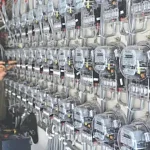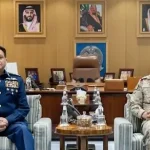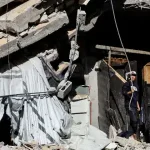ISLAMABAD: Cancer patients living within 200 kilometers of Islamabad can now receive positron emission tomography (PET) scans using gallium 68-related isotope radiation thanks to the Nuclear Medicine Oncology and Radiotherapy Institute (NORI)’s Rs1.5 billion cyclotron.
This was disclosed by NORI Director Dr. Muhammad Faheem at a media event on the hospital’s grounds on Wednesday.
According to him, the machine-prepared Gallium 68 isotope was previously accessible in Lahore, and the northern residents were suffering because the radiation-using isotopes could not be moved from Lahore to Islamabad for PET scans due to their limited lifespan.
It is important to note that a PET scan is an imaging test that can assist in revealing the biochemical or metabolic function of organs and tissues. A radioactive substance known as a tracer is used in PET scans to display both normal and abnormal metabolic activity.
With 19 associated hospitals servicing nearly 80% of patients, the institution claims to have no refusal policy.
Additionally, we are offering in-patients medications from the hospital pharmacy at 40% off. The medications in this pharmacy are of the same caliber, thus I will choose to utilize them for my family and myself. Additionally, we have a no-refusal policy, which has allowed us to treat 80% of cancer patients at 19 Atomic Energy Commission Cancer Hospitals (AECHs),” he added.
Dr. Faheem demonstrated during a visit that although the hospital had the best equipment, the ambiance was also considerably superior to that of even Pakistan’s private institutions.
Despite the fact that physicians nationwide are infamous for accepting gifts, kickbacks, even international trips from pharmaceutical corporations, Dr. Faheem’s office had a plate attached to the entrance that read, “no gift, please.”
NORI was founded in 1983 and has grown to become one of Pakistan’s top hospitals, according to Shahid Riaz Khan, Director General of Scientific Information and Public Relations for the Pakistan Atomic Energy Commission.
Since AEC institutions have a no-refusal policy, many of our patients are turned away from other private hospitals. We make an effort to treat them, and there are several success stories of patients who were told they wouldn’t live by private institutions but are now fully recovered and leading healthy lives,” he said.
Although there was no cancer-related registry in Pakistan, Dr. Shazia Fatima, Director General of the Nuclear Medicine and Oncology Center, stated that the AECHs were contributing to its preparation by supplying their data.
The hospital has categorized regions from where we receive cases of various categories based on the kinds of patients we receive. About half of Pakistan’s approximately 40 cancer treatment centers are run by the Pakistan Atomic Energy Commission. At NORI, we have the cyber knife facility. Nearly half of Pakistan’s 250 radiation-related oncologists have been employed at AECHs, she said.
According to her, early detection is crucial for both treatment and cost reduction, which is why PAEC is also trying to raise public awareness. In order for them to serve their countries and contribute to enhancing Pakistan’s reputation, we are also teaching some fellows who have traveled from other nations, she stated.
Approximately 58 percent of the patients were women, and 42 percent were men, according to Dr. Shazia Fatima, who shared the patient data.
According to her, the Pakistan Institute of Nuclear Science and Technology (PINSTECH) was saving Rs350 million in foreign cash while manufacturing medications. “The International Atomic Energy Agency recognized NORI as a ‘Ray of Hope’ in 2023,” she stated.
A Story of Success
The 54-year-old father of two, Muhammad Zia, received a cancer diagnosis in January 2024, but on December 18, he received word that he had won the battle.
After decades of struggle, he added, “I had chest pain and after a number of tests, a radiologist at a hospital informed me that I had a node on my kidney, but it was not treatable as the disease had spread to my liver and blood.” I was hoping that soon my good time would start, but the radiologist’s words nearly ended my life.
Then I went to NORI, where Dr. Faheem told me after the first test that the cancer was just in my kidney and recommended that I get my kidney removed as soon as possible. After my treatment began, I received the news that I had survived cancer about a year later, Mr. Zia stated.








